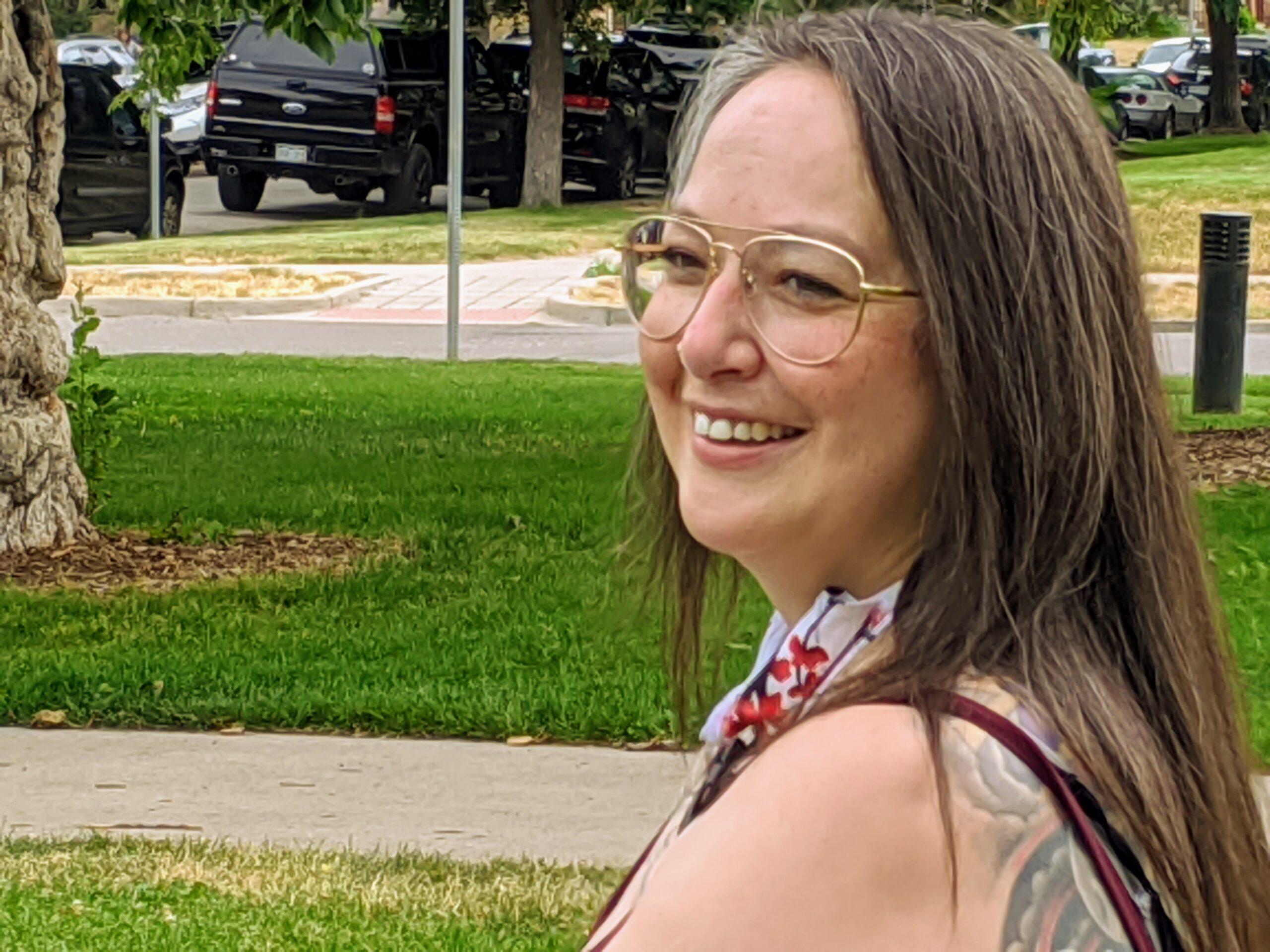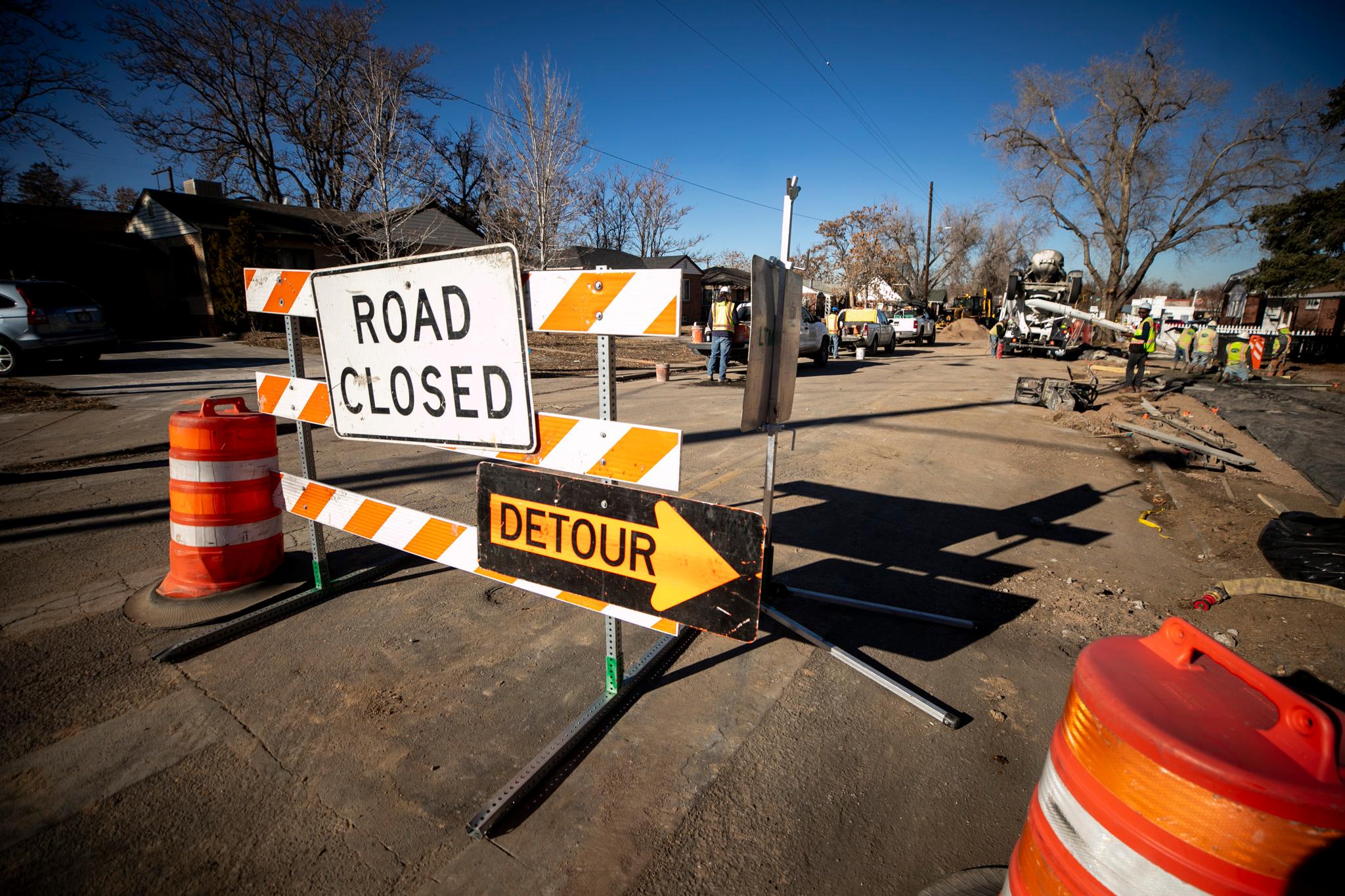During her years of couch surfing, scrounging together money for a motel room, or living on the streets, it took getting arrested for Cuica Montoya to consider how to regain control of her life.
"You're grinding just to get your needs met for that day. Or maybe that hour," Montoya said. "It's exhausting trying to get out of homelessness."
In jail on a drug possession charge, Montoya had a roof over her head and regular meals.
"I call it, 'when I came to,'" Montoya said. "I woke up in jail. I went, 'What am I doing with my life?'"
When she got out of jail, her mother took her in. They both got on the phone, calling programs they thought could help.
"My family have been my biggest supporters throughout all of this," Montoya said. "I had a lot of supporters cheering me on and telling me to keep moving forward."
Montoya found a Colorado Coalition for the Homeless transitional program that offered support and a path to permanent housing for people with mental health and substance abuse challenges who had experienced chronic homelessness. After 14 months there, Montoya signed a lease on an apartment in 2016, her first home in at least five years.
Montoya is now offering people struggling as she once did a place to regroup: tents in Denver's first sanctioned homelessness camp.
Montoya is the manager for a camp that the Colorado Village Collaborative hopes to open in the coming weeks.
The nonprofit collaborative had lobbied for such a camp where people experiencing homelessness amid the pandemic could find shelter, bathing and toilet facilities and connections to jobs, housing and health support. A site has not yet been pinned down, though a top candidate has been designated: the parking lot at the Coliseum.
Cole Chandler, executive director of the collaborative, said Friday that discussions with people living near the city-owned Coliseum were continuing. If the idea goes forward, a license agreement would be presented to City Council for a vote Chandler hopes would be held late this month or early next. Only after that could the 50-tent camp be set up. More sanctioned camps could follow.
In the meantime, Montoya is talking with people living in unsanctioned camps around the city to see who might want to move to a sanctioned camp. One group of campers invited her to a pot luck barbecue to discuss the idea. Montoya said she would have to pick up potato salad from a store because she's been too busy to cook.
"I would never have thought my calendar would be so full," she said.
As she works in Denver's encampments, Montoya finds people who meet barriers every where they turn, much like she did before she went to jail.
"The sense of hopelessness that you start to feel is so sad," she said. "But it's very real."
Montoya wants to pass on some of the support from which she benefits. She tells campers that "we just want to give you a place to be. Also offer the humane things like restrooms and showers and food."
"This is a chance for our most vulnerable to get access to services," Montoya said of the sanctioned camp sites. "Nobody outside has chosen to be there. How they got there is usually quite a process."
The Denver native is rooted in her city, which comes in handy when she navigates its streets, parks and alleys to speak to people experiencing homelessness.
Montoya grew up in Park Hill and can remember hanging out in the classroom where her mother taught at Harrington Elementary in Clayton.
The furthest Montoya has been away is Greeley, where she went on a scholarship to study business at the University of Northern Colorado after attending East High School and graduating from John F. Kennedy High School.
She came home to Denver after a year in Greeley. She got a job at a real estate firm and went on to get a real estate license, specializing in commercial real estate. She met a man.
"We had this fairy tale life. We were both successful. We bought our first house in our 20s."
Then the relationship foundered. Looking back, Montoya thinks they were too focused on the trappings of success -- a house, cars -- to build a foundation for a lasting marriage. Suddenly, she was the single mother of a four-year-old daughter. Montoya did not want anyone to know she was struggling.
"Would I tell you than that I was experiencing depression?" she said. "I didn't really know. I was in a dark place. I didn't know who I was any more. It was almost like giving up on the will to live."
She lost her home. Her daughter's father looked after her with help from Montoya's mother and sister. But eventually, Montoya lost touch with relatives and old friends. She found a few friends living on the streets.
"I didn't want to be alone," she said. "Homelessness for me was just so far out of the spectrum that I'd been on that I had no idea what to do."
Going to shelters, where she might have been connected earlier with support services, was not among the coping strategies her new friends used. Homelessness led Montoya to struggle with substance abuse and have brushes with the law.
Montoya, who now sits on the board of the Colorado Coalition for the Homeless, said that when she enrolled in its transitional program she was told it could take two years to find permanent housing she could afford. Housing has only gotten more expensive since then, she said.
The support she found at the coalition for mental health and substance abuse challenges also is in short supply.
"It's not like everybody who needs access to those services gets those services," she said. "I was blessed to find it when I found it."
During the transitional program, Montoya said she confronted tough questions: "What kind of mother do I want to be? What kind of sister, daughter? And what kind of community member do I want to be?"
And a practical question: "Who's going to want to hire me?"
Her first job following the transitional program was rolling burritos at an Illegal Pete's on Colfax. She saw the job advertisement on Facebook. She didn't have to wear a suit or hide her tattoos at work. At Illegal Pete's, her outgoing nature she'd lost while homeless returned.
"Getting a job and showing up for an employer gives you self-esteem," she said.
Montoya realized that during her earlier career in real estate, she'd chased monetary success and ignored her interest in professions that helped people. While working at Illegal Pete's, she saw another Facebook ad, for a Colorado Mental Wellness Network peer navigator training program. Montoya realized that "the things I went through that society sees as negative actually uniquely qualifies me for something."
After training and a few applications that yielded nothing, she got the job at the library. Soon, she was making presentations to city officials about the innovative program.
"Some of the time I felt like an impostor," Montoya said. "Am I supposed to be here? And it's like, 'Yes, I am.'"
Chris Conner, homelessness resolution director with Denver's housing department, said Montoya brings experience on the streets, a willingness to serve and leadership skills to the work of addressing homelessness.
"Cuica can talk, struggle, empathize with, and help everyone," Conner said.
Montoya said that at the library, she might help someone find a job through a placement agency one day, then never see him or her again. Work Options for Women allowed her to form more lasting relationships with people she mentored.
The coronavirus slowdown led to layoffs at Work Options for Women. Montoya said she had gone in to clean out her desk when she got a LinkedIn message from Chandler at the Colorado Village Collaborative about the sanctioned camping job.
"My journey kind of wound me up in this role," Montoya said.














